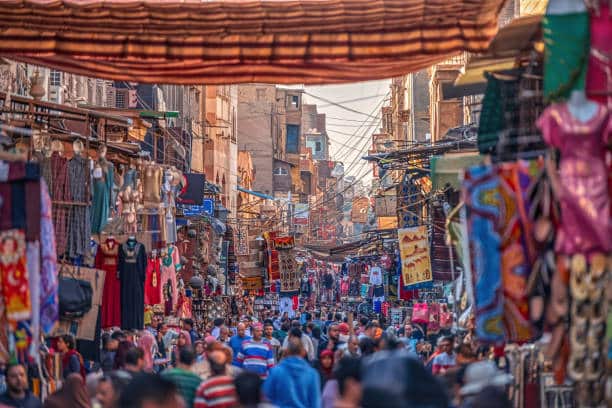Introduction
Africa is gradually becoming one of the most fascinating and vibrant markets in the world with great potential and a largely untapped market. As for the notes, demographic factors reveal that more than 50% of this population is under 25 years. The African continent is expected to have a population of 2.5 billion in the year 2050 and more of its population is in the urban areas and is embracing the advanced technology making it a new economic hub of the world. As with any business, attention is gradually shifting towards the black continent as the next frontier for investment. But what is that Africa is offering that the industrialized nations find so appealing? Now, let us consider the prospects of the African market and the perspectives of this active area in the future.
The Driving Forces Behind Africa’s Market Growth

1. Demographic Dividend
It is therefore important to note that one of Africa’s strengths is it is endowed with a youthful and growing population. According to UN data, Africa has the youngest demography in the world whereby more than 60% of the population of the Continent is below 25 years. This demographic infrastructure provides a huge supply of workforce and an increasing pool of population demanding products, services, and technologies.
As noted, Africa’s youth are urban, ICT literate and have embraced entrepreneurship. People are looking for ways to build solutions to solve challenges, providing a boost to technological growth in industries like financial technologies, education, health, and farming.
2. Urbanization

It is unique in terms of a rapidly changing demography, particularly with regard to urbanization because Lagos, Nairobi, and Johannesburg are turning into megacities. Today, more than 40% of the population makes its living in the urban area; the projected population in the African cities by 2030 is expected to be 50%. This is particularly the case with real estate, infrastructure, transport and consumer goods where there is a growing demand for housing, transport and urban services.
Cities are likewise technological drivers, birthplaces of new-generation digital ventures, and innovation incubators, which are essential in Africa’s growth.
3. Technological Leapfrogging
Therefore, one of the most outstanding characteristics of the African development process is the bypassing of the conventional infrastructure chains through technology. Some of the areas include; The advancement in social skills of the people in the continent has been boosted through the use of Mobile phones, for an instance. Modern products, such as M-Pesa in Kenya, have brought people with financial exclusion closer to access to money services.

Apart from fintech, e-commerce and logistics there are other sectors that are rapidly growing. Sixty-five-year-old Jumia markets itself on the back of Africa’s rising middle class, who are using digital means to purchase their goods and seek services.
Key Sectors Driving Africa’s Economic Growth
1. Agriculture

Again in the same year, the estimated potential of Africa from an agricultural point of view is again equally high but still virtually unrealized. The continent has another sixty percent of the world’s virgin land, which is arable for agriculture, making it a capable area for such expansion. The governments and private firms are using agritech to develop efficiency, food systems, and production.
The mechanization of farms, improved techniques of farming and better market access are slowly and steadily changing the face of farming in Africa. The sector is essential for food security for the continuously growing population of people in the continent, exports and trade.
2. Renewable Energy

Africa is endowed with potentially exploitable renewable energy resources including solar, wind and hydro electricity. Due to increasing power consumption and growing energy scarcity, most African nations are focusing on modern renewable energy schemes. For instance, South Africa and Morocco are- ahead in the production of solar power, while Kenya is recognized internationally for its Geothermal power.
There is an opportunity that can solve Africa’s power issue and this renewable energy business has attracted local and international investors looking for stable and lucrative power businesses.
3. Fintech
The fintech industry in Africa is growing with innovations in mobile payment, digital banking and microfinance leading the market. The world’s unbanked, especially those in East and West Africa, have embraced digital financial services as means of achieving financial inclusion. Firms such as Flutterwave and Chipper Cash have opened up digital payments, which allow organizations or persons to process cross-border transfers on the go.
The fintech sector remains on the rise, and investors pour money into innovative financial technologies that have a chance to address the African market’s challenges with financial access.
Challenges to Overcome
Despite the market potential that is in Africa, there is a need to overcome impediments for long term progress.
1. Infrastructure Deficits

Hence, in many areas, Africa’s infrastructure can by no means be deemed well-developed. Absence of a good network of roads, ports and energy resources affects business and minimizes efficiency. Nevertheless, countries such as Nigeria, Ethiopia, and Rwanda are developing the infrastructure by undertaking huge projects that are FDI sponsored.
2. Political Instability

Ever since the political turmoil, some African countries are politically unstable, and this can affect market confidence and long term investments. But there are quite stable countries today like Ghana, Botswana, Mauritius that are considered safe to invest in.
3. Regulatory Environment

Another issue on the African continent is the uncertainty of the regulatory frameworks sometimes, where firms experience problems associated with formal and informal bureaucratic structures; and policy incoherence. But, the governments are fully aware of the importance of nurturing a business friendly environment in order to foster FDI and boost native companies.
Why Africa’s Market Is the Future

1. The Rise of the African Continental Free Trade Area (AfCFTA)
The AfCFTA that began implementation in 2021 is the largest Free Trade Area in the world with an estimated population of over 1.3 billion people. In essence, the aim of the cut will enhance the level of trade among African countries, industrialization as well as diversification of the economy.
With increasing regional integration among the African countries, there will be new=opening up of more cross border business opportunities for products covering agriculture-push factor, manufactured products,-and services sector.
2. Growing Middle Class

Specifically, democracy is buoyed by the increasing population of the middle income consumer base in Africa. Increasing numbers of people have more disposable income as well as increasing the rates of urbanization and thus require basic necessities like housing and transportation, new and trendy clothing and fittings, electronics and gadgets, and entertainment. Retailers and sellers in consumer goods and retail are among industries that are exploring this emerging market.
3. Investment in Education and Skills Development
The future growth of Africa will, therefore, depend on its capacity to fund education and skills development. Today Rwandan and other African countries like Ghana are heading towards the development of education systems that will ensure you and will prepare youth for jobs which are existing in the world. Africa is building the talent for its tech markets and innovation centers through STEM (Science, Technology, Engineering and Mathematics) education.
Conclusion
Opportunities in Africa market are enormous that no company would want to let go of. With its young and technology oriented population base, natural resource wealth, and burgeoning industries, Africa is already moving into the role of an up and coming economic behemoth. Despite those challenges, there is promise for the continent is continuously improving infrastructure, political stability and trade arrangements that will enhance the continent’s potential.




